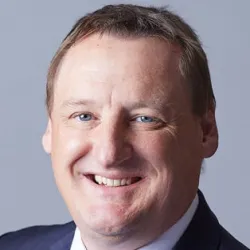Communications, Media Relations and Social Media Strategy 2023
Communications, Media Relations and Social Media Strategy
Communications, Media Relations and Social Media Strategy
Date: May 22–25, 2023
Time: 9am-1pm (EDT) | 2pm-6pm (BST) | 9pm-1am (SGT)
Location: Virtual
Chair: Marek Petruš, central bank communications consultant, and former director of the general secretariat, Czech National Bank
Key issues the course will address:
- How can central banks rebuild credibility as inflation fighters?
- How can digital and social media be effectively combined with traditional communications tools?
- How can central banks track and measure effectiveness when communicating with different audiences?
A central bank’s stock in trade is credibility. It is this quality that empowers policy making. This is no more apparent than in 2023 as central banks grapple with rising inflation, policy rates and market volatility.
Yet communication is changing too. Central banks have had to rapidly adapt and explore new tools and tactics, including social media. This means that they must balance retaining an identity as a prudent, responsible institution with changing their image to be perceived as less of ‘a dinosaur’.
Increasingly, central bankers recognise the need to explore synergies between traditional communication tools and those of the digital era.
This course is designed to equip central bankers to meet these challenges. Each day will feature three hours of expert-led Live Content to maximise the opportunity to share and learn. The chair will ensure participants have opportunities to network throughout the course, with time set aside for a workshop on implementing key learnings.
Agenda
Two weeks prior to your training course you will be emailed access to our content hub with course materials, including a trial to Central Banking if you are not already subscribed. There will be a combination of articles, reports and presentations that will contribute to two hours of preparation time for the live content. Presentations for the sessions will also be held here subject to the speaker approval.
Lessons learned from crisis-hit years: Adapting central bank communications to a high inflation, high interest rates world
14:00 – 14:30
Communications course introduction •
Course introduction session led by the chair
14:00 - 14:30
- Introductions and welcome from the chairperson
- Overview of the training course
- Discussion of the delegate expectations
Marek Petruš
Central bank communications consultant and former director of the general secretariat
Former Czech National Bank
Marek Petruš is an external relations consultant with deep expertise in financial and economic policy communications. He has worked closely with top monetary policymakers as a strategic advisor to governors in the Czech Republic as well as more than a dozen low-to-middle income developing countries. He has been affiliated with the International Monetary Fund as a short-term expert for central bank communications, advising central banks across Eastern Europe, Asia, and Africa to make their policies more transparent and on modernising their communications. His expertise and experience stems from an assignment as Director of Communications and later chancellor at the Czech National Bank (CNB), preceded by a career with the world’s leading news media companies, including Reuters and the Wall Street Journal. During his tenure, the Czech central bank upgraded its policy communications and brought its transparency and communication toolkit into line with global best practices. These advances helped solidify the CNB’s standing as one of the world's most transparent and best communicating central banks.
14:30 – 15:30
The media in 2023: new dynamics, challenges and opportunities
14:30 - 15:30
- Key factors, themes and dynamics shaping the media environment in 2023
- New roles and responsibilities of the communication officials in central banks
- Overview of unavoidable risks, critical challenges and emerging opportunities
- Discussion of the relationship between the execution of communication strategies and the performance of central banks’ functions and mandates
15:30 – 15:45
Coffee break
10:45 - 12:00
15:45 – 16:45
Monetary policy communications in a time of crisis – Lessons learned
13:15 - 14:15
- The integrity of the central bank and consistency of monetary policy as the preconditions to openness
- Increasing central bank openness on monetary policy during a highly challenging operating environment
- Ingredients of successful strategies and steps to be avoided in “crisis communication” to the markets and the public – the case of the National Bank of Ukraine
Volodymyr Lepushynskyi
Director, monetary policy and economic analysis department
National Bank of Ukraine
In 2004, joined the National Bank of Ukraine (NBU) on the position of economist responsible for forecasting money market performance. From 2008 to 2019, worked as the Head of Unit, Deputy Head of Division, Head of the Division for Monetary Policy Strategy, Deputy Director of Monetary Policy and Economic Analysis Department. In December 2019, was appointed as a Director of Monetary Policy and Economic Analysis Department. Has contributed to implementing inflation targeting regime in Ukraine, elaborating strategic documents on monetary policy and developing a rules-based monetary policy framework.
Graduated from Kyiv National Economic University with MA degree (with honors) in Finance (2004). Holds a Ph.D. in Economics from Ukrainian Academy of Banking. Has published extensively on monetary, macroeconomic, and modeling issues.
16:45 – 17:15
17:15 – 18:15
Macro-prudential policy communications: the brave new world of central bank communications
14:45 - 15:45
- Communication challenges stemming from the growing importance of financial stability, or macro-prudential, policies
- Disparate goals of communications on price stability and financial stability
- Similarities between monetary policy and macro-prudential communication toolkits
- Tips for overcoming challenges for clear and open communication
Marek Petruš
Central bank communications consultant and former director of the general secretariat
Former Czech National Bank
Marek Petruš is an external relations consultant with deep expertise in financial and economic policy communications. He has worked closely with top monetary policymakers as a strategic advisor to governors in the Czech Republic as well as more than a dozen low-to-middle income developing countries. He has been affiliated with the International Monetary Fund as a short-term expert for central bank communications, advising central banks across Eastern Europe, Asia, and Africa to make their policies more transparent and on modernising their communications. His expertise and experience stems from an assignment as Director of Communications and later chancellor at the Czech National Bank (CNB), preceded by a career with the world’s leading news media companies, including Reuters and the Wall Street Journal. During his tenure, the Czech central bank upgraded its policy communications and brought its transparency and communication toolkit into line with global best practices. These advances helped solidify the CNB’s standing as one of the world's most transparent and best communicating central banks.
Combining new and tested tools: speaking in a way that people will resonate with
14:00 – 15:00
“A little more conversation and a little less action”: the role of plain language
15:15 - 16:15
- Roles and applications of plain language in central banks’ communication
- ‘Tricks of the trade’ for effectively translating technical terms into everyday language
- Overview of key challenges and how to overcome them
- Case study: systemic approach to plain language in Sveriges Riksbank
Marianne Sterner has worked as plain language consultant at Sveriges Riksbank, the central bank of Sweden, for fourteen years. She is part of the strategy group within the Communications Division, which has the task of planning the Riksbank’s communication and adapting it to its various target groups. Marianne has a combined BA degree in Swedish and French and has 35 years of experience as a freelance plain language consultant, mainly in the public sector.
15:00 – 15:15
Coffee break
10:45 - 12:00
15:15 – 16:15
Evolving central bank communications in the 21st century – the case of a G7 central bank
15:15 - 16:15
- The communications revolution among central banks: why and how
- The benefits of embedded communications
- The ongoing drive toward transparency
- The need to reach multiple audiences
Paul Badertscher has been associated with the Bank of Canada for roughly 25 years – earlier as a journalist with agencies Bridge News and Bloomberg News, and later as the Bank’s head speechwriter and now as Director of Media Relations. Over that time, he’s lived through a revolution in central bank transparency. He’s gone from the era where central banks barely tolerated reporters and said as little as possible to today, when central banks are working hard to reach key stakeholders and the public with their messages.
Paul has a Bachelor of Arts Degree from Carleton University in Ottawa and a Master of Journalism degree from Western University in London, Ontario.
16:15 – 16:45
Networking break
15:30 - 16:00
16:45 – 17:45
How to create, implement and measure a culturally perceptive communications plan
16:45 - 17:45
Communication in practice: designing effective outputs to reach wider audiences
14:00 – 15:00
Workshop part 1: making the most of policy press releases and media presentations
13:00 - 14:00
- Introduction
- Group exercise and task 1 – distributed to attendees prior to the workshop
- Group presentations
Marek Petruš
Central bank communications consultant and former director of the general secretariat
Former Czech National Bank
Marek Petruš is an external relations consultant with deep expertise in financial and economic policy communications. He has worked closely with top monetary policymakers as a strategic advisor to governors in the Czech Republic as well as more than a dozen low-to-middle income developing countries. He has been affiliated with the International Monetary Fund as a short-term expert for central bank communications, advising central banks across Eastern Europe, Asia, and Africa to make their policies more transparent and on modernising their communications. His expertise and experience stems from an assignment as Director of Communications and later chancellor at the Czech National Bank (CNB), preceded by a career with the world’s leading news media companies, including Reuters and the Wall Street Journal. During his tenure, the Czech central bank upgraded its policy communications and brought its transparency and communication toolkit into line with global best practices. These advances helped solidify the CNB’s standing as one of the world's most transparent and best communicating central banks.
15:00 – 15:15
Coffee break
10:45 - 12:00
15:15 – 16:15
Workshop part 2: making the most of policy press releases and media presentations
14:15 - 15:15
- Group exercise and task 2 – distributed to attendees prior to the workshop
- Group presentations
- Group exercise and task 3 – distributed to attendees prior to the workshop
- Group presentations
- Conclusion and key takeaways
Marek Petruš
Central bank communications consultant and former director of the general secretariat
Former Czech National Bank
Marek Petruš is an external relations consultant with deep expertise in financial and economic policy communications. He has worked closely with top monetary policymakers as a strategic advisor to governors in the Czech Republic as well as more than a dozen low-to-middle income developing countries. He has been affiliated with the International Monetary Fund as a short-term expert for central bank communications, advising central banks across Eastern Europe, Asia, and Africa to make their policies more transparent and on modernising their communications. His expertise and experience stems from an assignment as Director of Communications and later chancellor at the Czech National Bank (CNB), preceded by a career with the world’s leading news media companies, including Reuters and the Wall Street Journal. During his tenure, the Czech central bank upgraded its policy communications and brought its transparency and communication toolkit into line with global best practices. These advances helped solidify the CNB’s standing as one of the world's most transparent and best communicating central banks.
16:15 – 16:45
16:45 – 17:45
The effective use of speeches in central bank communication and policy
16:45 - 17:45
- The effective use of speeches in central bank communication and policy
- The role of traditional communication tools in the digital era
- The unique value of speeches in central banks’ policy communication
- Key features of an effective speech preparation and successful delivery
- Examples of ways to measure the effectiveness of speeches
Jeremy Torobin has been a senior communications consultant (speechwriter) at the Bank of Canada since mid-2017. Torobin came to the Bank from Canada’s Finance Department, where he was a senior communications strategist responsible for financial sector policy. Prior to Finance, he was an analyst at Medley Global Advisors, a macro intelligence firm in New York, where he directed research on Canada and helped cover the US Federal Reserve and international organizations such as the G20 and IMF. Before Medley, Torobin spent 14 years in journalism including three years covering the Mark Carney-led Bank of Canada for The Globe and Mail, and four years just before that as a government/economy editor at Bloomberg News. This included a year in Washington DC at the height of the 2008-09 crisis. Earlier, he spent 2000-2004 in Washington working at CQ-Roll Call, reporting on everything from economic policy and trade to the response to 9/11 and authorization of the Iraq War. He left CQ in the fall of 2004 to spend the 2004-05 academic year at the London School of Economics, where he earned a master's in international relations on a British Chevening Scholarship. He also holds a journalism degree from Carleton University in Ottawa.
Improving communication and engagement with the general public and industry players
14:00 – 15:00
Communication with general public: core elements and challenges
13:00 - 14:00
- Why are we talking about communication with the general public?
- How do we define our target groups?
- What live communication formats are available at the Bundesbank?
- Now it’s your turn: design a new event with a focus on increased dialogue with your guests
Ute has been with the Deutsche Bundesbank for 11 years. Initially, she was primarily responsible for banking supervision and regulatory issues at the press office. Since joining the strategy team six years ago, her key focus has been on how the central bank should communicate with citizens and what formats are needed for this. Together with her team, she regularly develops new event and exhibition formats. Her work is based on a representative opinion and image survey conducted on an annual basis. Ute holds a degree as an economics journalist and a master’s degree in business administration.
15:00 – 15:15
Coffee break
10:45 - 12:00
15:15 – 16:15
In search of excellence in websites and digital platforms
16:30 - 17:30
- The unique value of websites and digital publications as communication tools
- Key features of an effective management of the website: setting goals; understanding audiences and their needs; usability tests (demo)
- Examples of effective delivery of announcements, speeches, data and research to the general public and banking professionals
- Case study: Measuring impact - the journey from web metrics to communications impact reporting
Christian Beslmeisl is the Deputy Head of Communications at the Bank for International Settlements (BIS). His team is responsible for the BIS’s website, www.bis.org, its Social Media channels, intranet and for visual communications services. Christian joined the BIS as a Senior Business Analyst in 2002 and in this role was responsible for developing the BIS’s intranet. He has held increasingly responsible positions at the BIS, including Head of Publishing. Prior to joining the BIS, Christian worked for the Deutsche Bundesbank, with his last position being deputy team leader of the eCollaboration team. Christian holds a degree from the Deutsche Bundesbank University of Applied Sciences
16:15 – 16:45
Communications closing remarks and delegate action plans
15:30 - 16:15
Concluding session led by the chair
- Summary of the course
- Discussion of the observed trends and case studies
- Application of learning points in the delegates’ home organisations
- Preparation of action points
Marek Petruš
Central bank communications consultant and former director of the general secretariat
Former Czech National Bank
Marek Petruš is an external relations consultant with deep expertise in financial and economic policy communications. He has worked closely with top monetary policymakers as a strategic advisor to governors in the Czech Republic as well as more than a dozen low-to-middle income developing countries. He has been affiliated with the International Monetary Fund as a short-term expert for central bank communications, advising central banks across Eastern Europe, Asia, and Africa to make their policies more transparent and on modernising their communications. His expertise and experience stems from an assignment as Director of Communications and later chancellor at the Czech National Bank (CNB), preceded by a career with the world’s leading news media companies, including Reuters and the Wall Street Journal. During his tenure, the Czech central bank upgraded its policy communications and brought its transparency and communication toolkit into line with global best practices. These advances helped solidify the CNB’s standing as one of the world's most transparent and best communicating central banks.
Learning outcomes
At the conclusion of the training, participants will be able to:
- Create a crisis communication plan (to include role playing exercises) based on real life examples
- Gain insight into how to create, implement and measure a culturally perceptive communications plan
- Identify pathways for clear and open communication with different stakeholders
- Learn how to balance social media use with traditional communication tools and channels
- Develop measurement matrixes and understand how to respond to key indicators
Chair

Marek Petruš
Central bank communications consultant and former director of the general secretariat
Former Czech National Bank
Marek Petruš is an external relations consultant with deep expertise in financial and economic policy communications. He has worked closely with top monetary policymakers as a strategic advisor to governors in the Czech Republic as well as more than a dozen low-to-middle income developing countries. He has been affiliated with the International Monetary Fund as a short-term expert for central bank communications, advising central banks across Eastern Europe, Asia, and Africa to make their policies more transparent and on modernising their communications. His expertise and experience stems from an assignment as Director of Communications and later chancellor at the Czech National Bank (CNB), preceded by a career with the world’s leading news media companies, including Reuters and the Wall Street Journal. During his tenure, the Czech central bank upgraded its policy communications and brought its transparency and communication toolkit into line with global best practices. These advances helped solidify the CNB’s standing as one of the world's most transparent and best communicating central banks.







